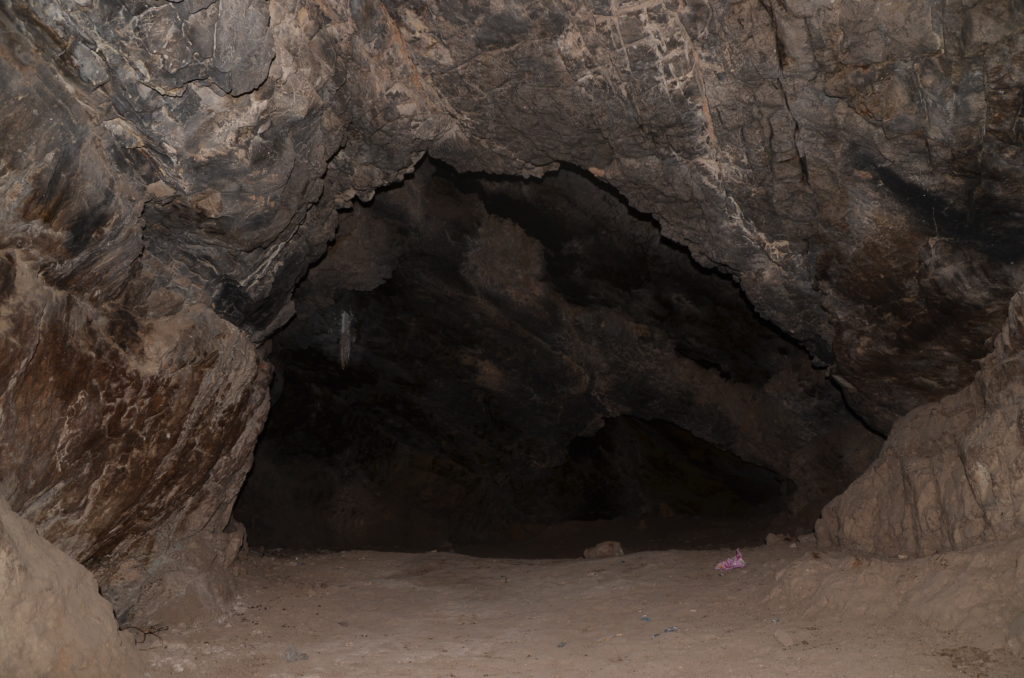Trigger warning – cannibalism, suicide, gore
‘As I walked alongside them, I knew that each of them was dwelling on ghosts and stories of their own.’
The Magnus Archives was a fictional serialized podcast which ran from 2016 to 2021. Each week protagonist Jonathan Sims, the head archivist at the fictional Magnus Archives, records a written statement onto a cassette in an attempt to organize and declutter the massive archives. These archives have apparently existed since the 1800s, when founder Jonah Magnus began taking statements from people who had witnessed the supernatural and occult. Each episode is functionally an individual story, but overarching plotlines, usually occurring in the first or last five minutes of an episode, drive the story forward and connect individual accounts together.

In episode 95 (‘Absent without Leave’), Luca, a soldier in the Italian army during World War II, returns once peace has been declared in Italy to his small mountain town, where he learns that his friends are going to hunt down deserters in hiding. He joins their party, and quickly finds things are not as they seem. People with what should be fatal wounds continue to live, even after sustaining further injuries from Luca and his friends. As his friends are picked off by snipers in the hills around them, Luca finds himself in a cave full of the dead bodies of soldiers, whose uniforms get impossibly older (and whose eyes begin to open) the further he explores.
In my study of peace narratives, I have found that stories of war – be they films, novels, or other formats (such as this entry) – vastly outnumber stories of peace. One reason for this comes down simply to the mechanics of storytelling: stories of conflict are ‘narratively satisfying’, and narrative conventions make it easier to write about war as a conflict than about peace as a conflict. The other reason for this trend is that it is difficult to talk about peace in a way that aligns with what the average audience typically imagines ‘peace’ to be: something beautiful, natural, everything that war is not. In reality, as many items in this museum show, peace and conflict overlap; and peace-building is a slow process involving hard work and compromise. Utopian visions of peace may be popular, but they vastly underestimate its complexity.
Given how difficult ‘real’ peace is to build, to comprehend and to represent, it is understandable that many narrators skirt the entire topic. One consequence of this can be that some narratives of a post-war world end up creating a pessimistic image which is thoroughly devoid even of glimmers of peace. This narrative falls into that category. This podcast episode presents a version of the world where peace has been officially declared, but the implications of that peace–namely, an end to fighting and violence–have not yet taken hold. This phenomenon on its own has been observed numerous times in real life, but it is given an extra twist in this story through the use of horror tropes.

This is an interesting take on a post-war phenomenon which historically has been written about mostly in non-fiction, particularly through news outlets and reports produced by large-scale humanitarian organisations. Formal surrenders and the signing of ceasefires or peace treaties help to establish ‘legal’ peace; but that is rarely accompanied (at least initially) by meaningful ‘peace on the ground’ or individual experiences of peace. Violence which occurs after legal peace is declared is often easy to dismiss or ignore, but it can be as difficult to contain as it is difficult to track. The analogy of a zombie acopalypse captures both the essence and the challenge of this kind of ongoing war after legal peace has been declared.
Storytelling can be an immersive medium. So in this podcast, we find ourselves in the shoes of our protagonists, desperate to put an end to more trauma and violence, even if that means more violence. It is difficult to place oneself in an immediate post-combat zone, as few of us have ever been in one. But by using an old, familiar story–that of a fight against those who are not only supernaturally unable to negotiate or reason with, but also totally unwilling–we, and the protagonist we follow, are much more able to understand the realities of a peace which is legal, but not yet real or meaningful for the individuals in this community.

Horror and its tropes are especially useful in creating stories where the subject matter is so familiar that it is difficult not to pick up on the underlying, often political themes. By taking a story about a haunted house, a ghost which only appears if you say his name five times, or a seemingly perfect family with skeletons both real and imagined in their closet, authors have for centuries explored darker themes: the trauma caused by having an abusive spouse or parent (e.g., The Shining), gentrification and the dangers of a ‘white saviour complex‘ (Candyman), or racially motivated abuses of power (Get Out). This episode takes this trend and applies it to a story about war and peace. The pessimism we see at the end is in good company: horror stories rarely end well, and particularly not when they also contain a political message or warning. The violence we see in this story does not excuse its realistic counterpart, nor does it condemn it. It is simply a part of the unsettling story, and the unresolved tension forces us to sit both with the macabre elements of the horror story as well as the bleak elements of newly established peace. Like all good horror stories, it nudges us to look with fresh eyes at some of the horrors in our own world – and this is particularly important given our collective tendency to idealise peace.
What do you think?
- When is peace achieved? When it is declared? When it is widespread? When there is no conflict at all?
- Would you characterise the activities of Luca and his friends as ‘peace-making’?
- What can be gained from using alternative tropes or archetypes like horror to discuss political topics?
- How seriously do you think this podcast is inviting us to think about different forms and experiences of peace? Does it matter if its intentions are serious or not?
If you enjoyed this item in our museum…
You might also enjoy ‘Frankenstein in Baghdad‘, ‘The Cabinet of Dr Caligari‘, ‘Brave New World‘ and items with the tag ‘Fragile Peace‘.
Arden Henley, May 2022
[1] Other examples include: Ruff, Matt, Lovecraft Country, Harper Collins, 2016; and Weekes, Remi, His House, Netflix, 2020.